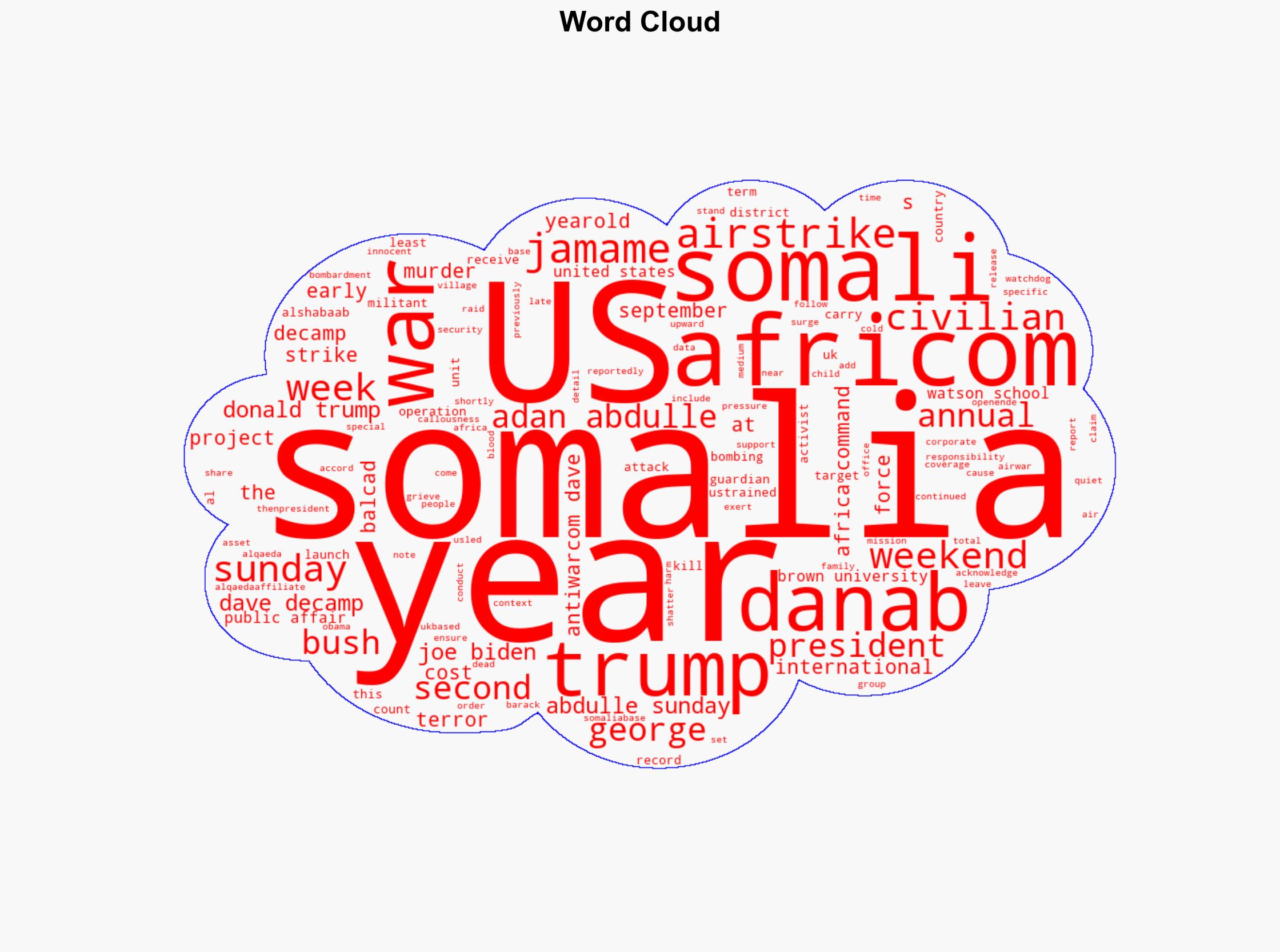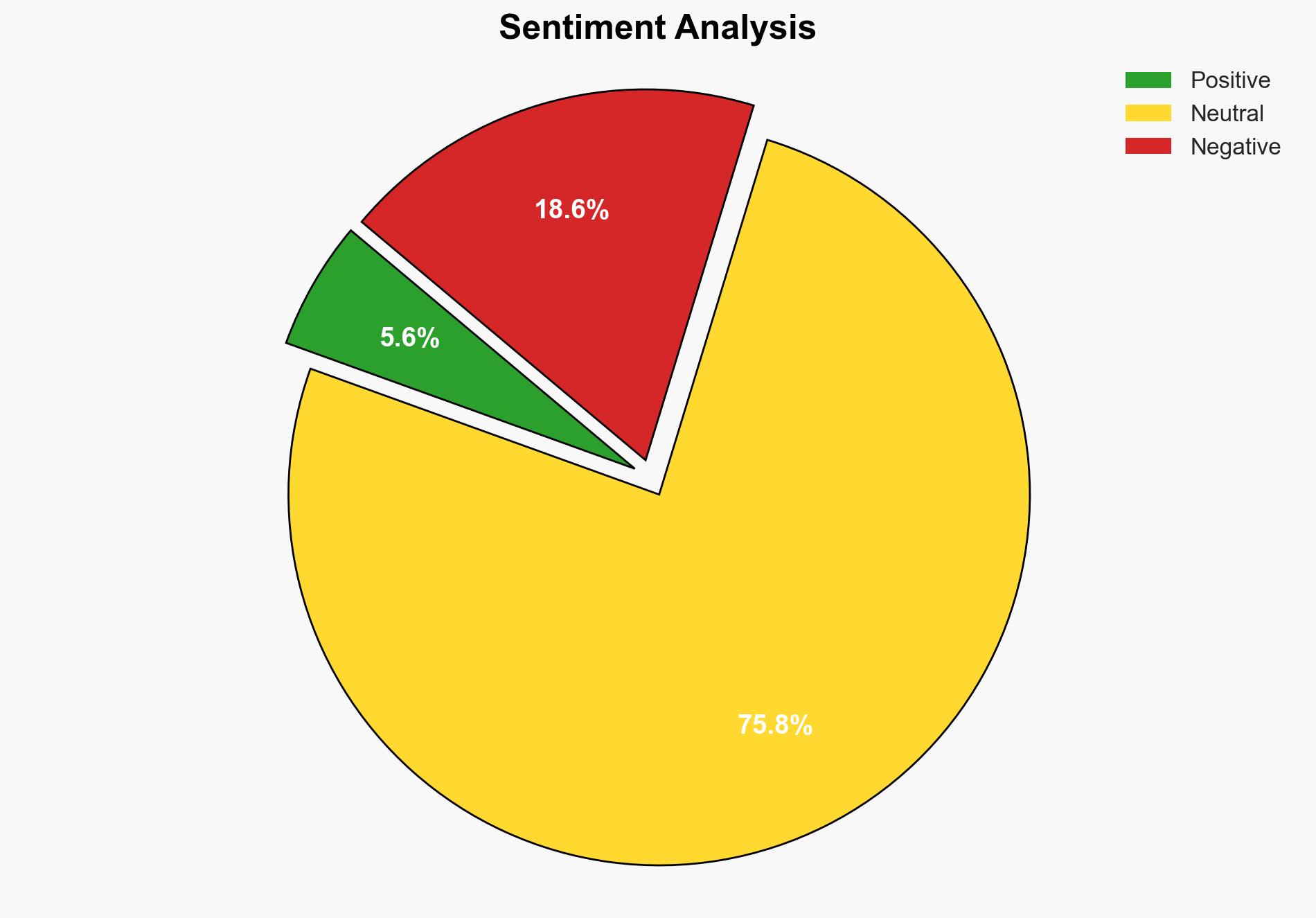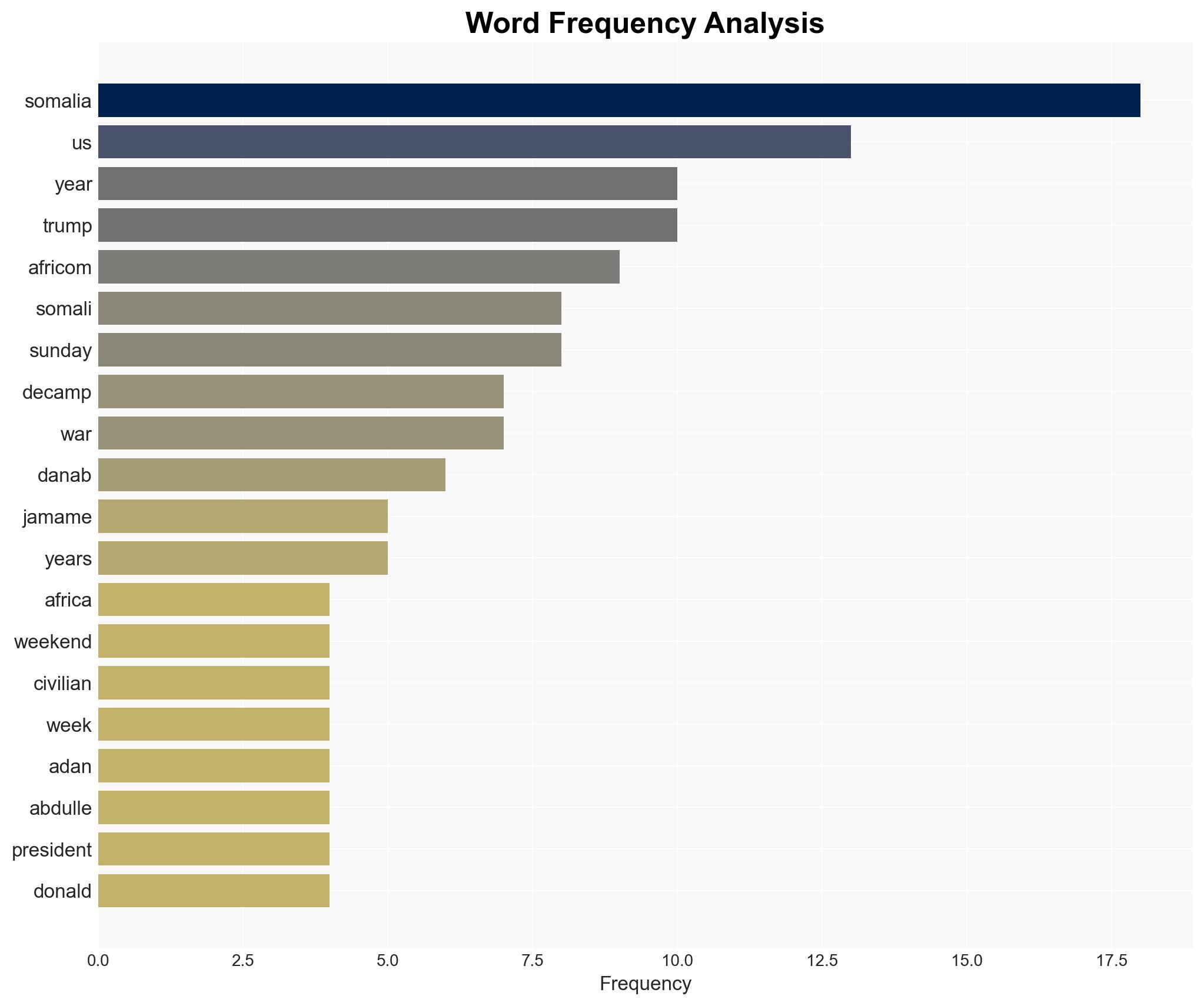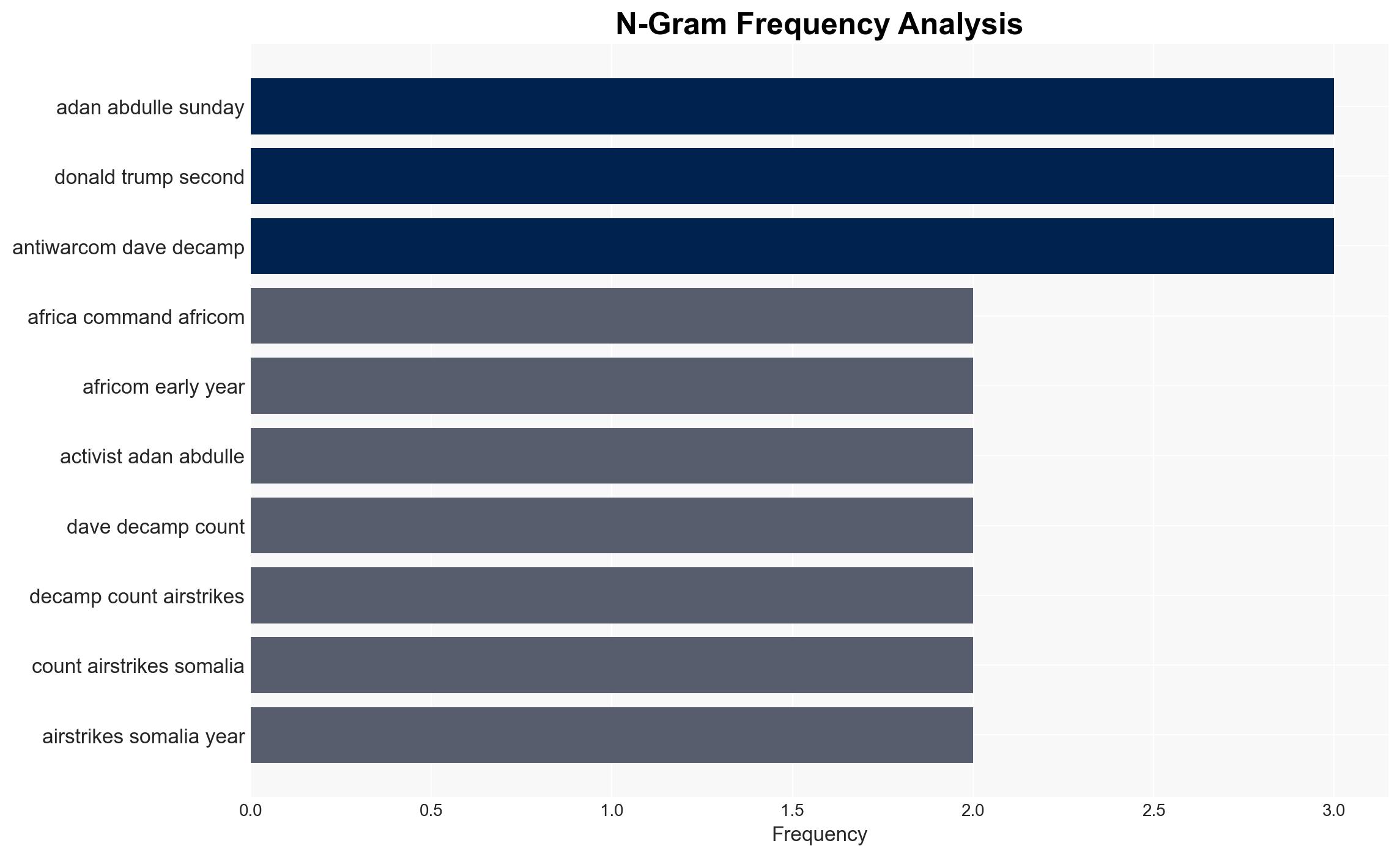At Least 12 Somali Civilians Including 8 Children Killed in Suspected US Airstrikes – Antiwar.com
Published on: 2025-11-18
AI-powered OSINT brief from verified open sources. Automated NLP signal extraction with human verification. See our Methodology and Why WorldWideWatchers.
Intelligence Report:
1. BLUF (Bottom Line Up Front)
The most supported hypothesis is that the US airstrikes were conducted with the intention of targeting al-Shabaab militants but resulted in unintended civilian casualties. This aligns with historical patterns of US military operations in Somalia. Confidence Level: Moderate. Recommended action includes enhancing intelligence accuracy and operational transparency to mitigate civilian harm and improve strategic communication with Somali authorities and the international community.
2. Competing Hypotheses
Hypothesis 1: The US airstrikes were intended to target al-Shabaab militants but inadvertently resulted in civilian casualties. This hypothesis is supported by AFRICOM’s acknowledgment of the airstrike and historical precedence of civilian harm in similar operations.
Hypothesis 2: The airstrikes were deliberately misreported or exaggerated by anti-US entities to undermine US military efforts and influence public perception. This hypothesis considers potential bias in reporting and the strategic interests of adversarial groups.
Hypothesis 1 is more likely due to the consistency of AFRICOM’s operational patterns and the lack of concrete evidence supporting deliberate misinformation by anti-US entities.
3. Key Assumptions and Red Flags
Assumptions: The US military operations are primarily focused on al-Shabaab targets. The reported civilian casualties are accurate and not inflated by biased sources.
Red Flags: Potential bias in reporting from antiwar.com and other sources with a history of opposing US military actions. Lack of independent verification of casualty figures raises questions about the accuracy of the reports.
Deception Indicators: Discrepancies between AFRICOM’s statements and local reports could indicate attempts to manipulate narratives by either side.
4. Implications and Strategic Risks
The incident risks escalating anti-US sentiment in Somalia and could be exploited by al-Shabaab for recruitment and propaganda. Politically, it may strain US-Somali relations and complicate collaboration with Somali forces. Informationally, it could fuel narratives of US military overreach and civilian endangerment, impacting global perceptions of US foreign policy.
5. Recommendations and Outlook
- Enhance intelligence gathering and verification processes to minimize civilian casualties and improve target accuracy.
- Increase transparency and communication with Somali authorities and international bodies to build trust and accountability.
- Monitor media narratives and counter misinformation through strategic communication efforts.
- Best-case scenario: Improved operational accuracy and communication lead to reduced civilian casualties and strengthened US-Somali cooperation.
- Worst-case scenario: Continued civilian casualties lead to increased anti-US sentiment and bolster al-Shabaab’s influence.
- Most-likely scenario: Ongoing challenges in balancing military objectives with civilian safety, requiring continuous adaptation and strategic communication.
6. Key Individuals and Entities
Adan Abdulle: Somali activist reportedly killed in the airstrikes.
Dave DeCamp: Journalist from Antiwar.com reporting on the incident.
AFRICOM: US Africa Command responsible for military operations in Somalia.
7. Thematic Tags
Regional Focus, Regional Focus: Somalia, US Military Operations, Civilian Casualties, al-Shabaab
Structured Analytic Techniques Applied
- Causal Layered Analysis (CLA): Analyze events across surface happenings, systems, worldviews, and myths.
- Cross-Impact Simulation: Model ripple effects across neighboring states, conflicts, or economic dependencies.
- Scenario Generation: Explore divergent futures under varying assumptions to identify plausible paths.
Explore more:
Regional Focus Briefs ·
Daily Summary ·
Support us





